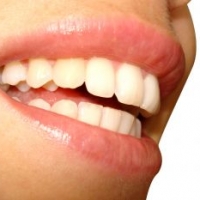At Work, Laughter May Not Always Be the Best Medicine

When I wrote an article a year ago about the importance of laughter, my focus was entirely on the positive. At the end of the article, I included links to some websites that are highly chuckle-worthy (and no, they’re not about cats). But maybe I shouldn’t have, because it now appears that laughter isn’t all it’s cracked up to be. While laughter may be the best medicine most of the time, there are times when it may not be.
For example, researchers have determined that laughter can cause you to dislocate your jaw, inhale a foreign object, or spread infectious diseases. Laughter can lead to hernias and asthma attacks. And a woman with a heart condition had a stroke after several minutes of intense laughter.
Does this mean we should do our work with nary a flip comment, clever pun, or silly joke for fear that we might cause our coworkers to sustain damage from too hearty a laugh? Must we adopt a demeanor of doom and gloom for fear of the negative consequences of a gaggle of giggles? Should we stop referring to funny bones—especially given that banging one’s funny bone is anything but?
There’s an exercise I’ve used in my seminars to help people appreciate how much they have in common. Invariably, almost everyone laughs during the exercise. Wow—maybe I’ve been causing participants potential harm.
By the way, I was intrigued to learn that it’s probably called the funny bone because of the sound resemblance between the name of the bone of the upper arm, the humerus, and the word humorous. When I learned this, I made a point of not laughing.
Fortunately, the researchers, who reviewed studies to document the beneficial and harmful effects of laughter, don’t dispute the many benefits of laughter. Among the benefits they cite are reduced anger, increased pain threshold, and reduced risk of heart attack. Probably few things confer as wide a range of physical, mental, social, and emotional benefits as laughter.
And let’s not forget increased energy expenditure. The researchers estimated a day of genuine laughter could burn two thousand calories. That’s a diet that may be worth going on!

